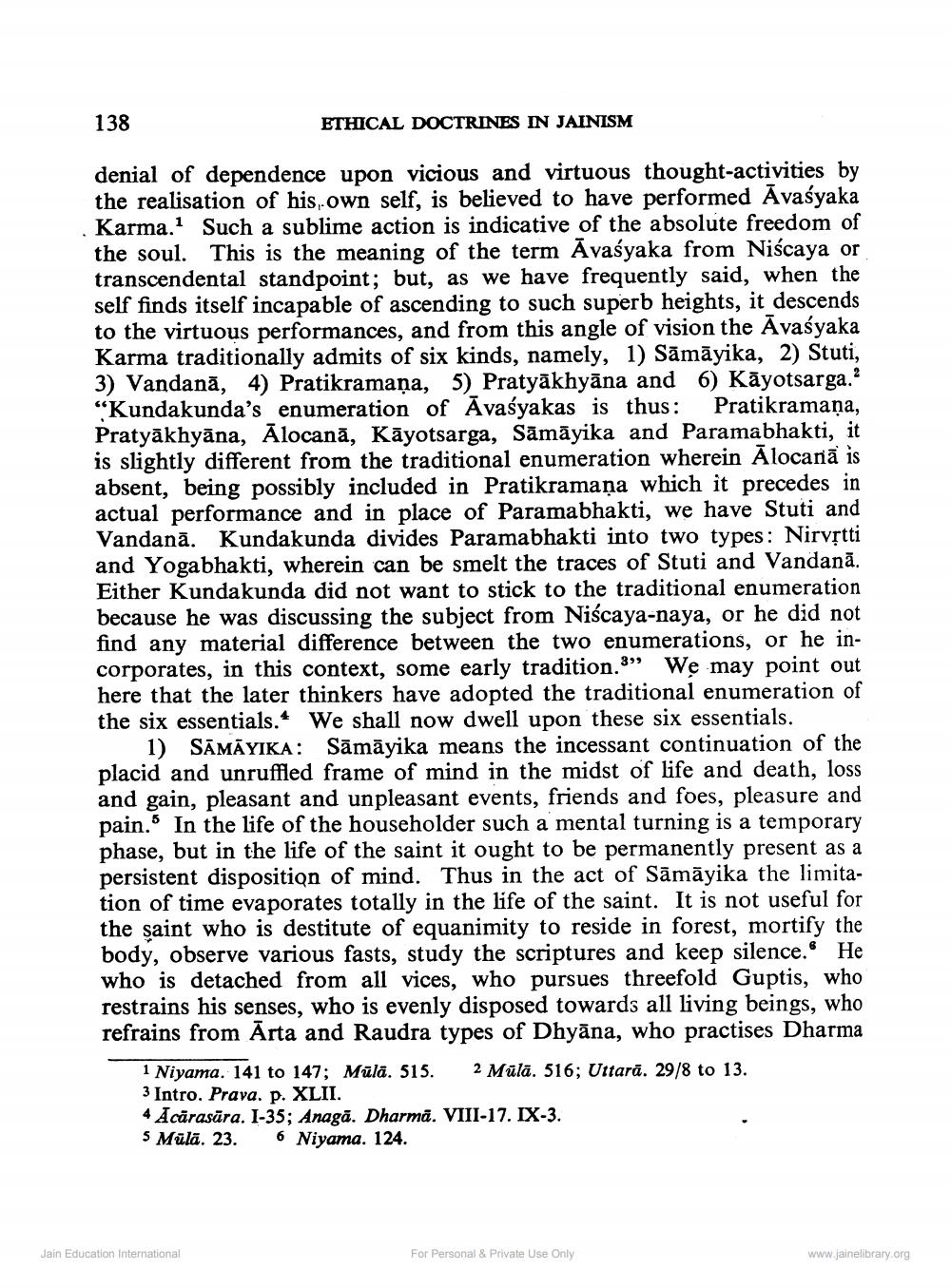________________
138
ETHICAL DOCTRINES IN JAINISM
denial of dependence upon vicious and virtuous thought-activities by the realisation of his own self, is believed to have performed Avaśyaka Karma. Such a sublime action is indicative of the absolute freedom of the soul. This is the meaning of the term Āvaśyaka from Niscaya or transcendental standpoint; but, as we have frequently said, when the self finds itself incapable of ascending to such superb heights, it descends to the virtuous performances, and from this angle of vision the Avaśyaka Karma traditionally admits of six kinds, namely, 1) Sāmāyika, 2) Stuti, 3) Vandanā, 4) Pratikramaņa, 5) Pratyākhyāna and 6) Kāyotsarga.? “Kundakunda's enumeration of Āvasyakas is thus: Pratikramana, Pratyākhyāna, Ālocană, Kāyotsarga, Sāmāyika and Paramabhakti, it is slightly different from the traditional enumeration wherein Alocană is absent, being possibly included in Pratikramaņa which it precedes in actual performance and in place of Paramabhakti, we have Stuti and Vandanā. Kundakunda divides Paramabhakti into two types: Nirvṛtti and Yogabhakti, wherein can be smelt the traces of Stuti and Vandanā. Either Kundakunda did not want to stick to the traditional enumeration because he was discussing the subject from Niscaya-naya, or he did not find any material difference between the two enumerations, or he incorporates, in this context, some early tradition.3" We may point out here that the later thinkers have adopted the traditional enumeration of the six essentials.* We shall now dwell upon these six essentials.
1) SĀMĀYIKA: Sāmāyika means the incessant continuation of the placid and unruffled frame of mind in the midst of life and death, loss and gain, pleasant and unpleasant events, friends and foes, pleasure and pain." In the life of the householder such a mental turning is a temporary phase, but in the life of the saint it ought to be permanently present as a persistent disposition of mind. Thus in the act of Sāmāyika the limitation of time evaporates totally in the life of the saint. It is not useful for the saint who is destitute of equanimity to reside in forest, mortify the body, observe various fasts, study the scriptures and keep silence. He who is detached from all vices, who pursues threefold Guptis, who restrains his senses, who is evenly disposed towards all living beings, who refrains from Ārta and Raudra types of Dhyāna, who practises Dharma
1 Niyama. 141 to 147; Mülā. 515. 2 Müla. 516; Uttarā. 29/8 to 13. 3 Intro. Prava. p. XLII. 4 Acarasāra. I-35; Anagā. Dharmă. VIII-17. IX-3. 5 Müla. 23. 6 Niyama. 124.
Jain Education International
For Personal & Private Use Only
www.jainelibrary.org




